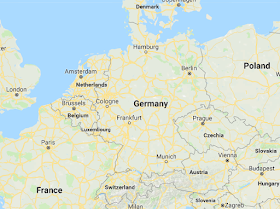Is wind power too expensive and unreliable to be viable?
dpa / Stefan SauerbildTranslated by Google from German site Focus.de
Workers build a wind turbine from the manufacturer Enercon.
The crisis in the German wind energy industry is worsening. At the largest German manufacturer Enercon, hard cuts are said to cost 3000 jobs, according to the "Süddeutsche Zeitung".
As of next year, the company plans to cut contracts with German suppliers and also cut jobs at its headquarters. Structurally weak regions are affected anyway. According to the company, 1,500 jobs will be lost at each of the Aurich and Magdeburg locations. At the company's headquarters in Aurich, 250 to 300 jobs are affected.
On Friday afternoon, thousands of workers learned what the Enercon plans meant for them. The state governments concerned were also informed of the plans. For the most part, the Group does not cut the positions directly. It has almost completely outsourced their production to smaller third-party companies, which often depend solely on Enercon. If supply contracts are terminated as planned, many of these companies are threatened with the end.
Why the government is cutting subsidies is not addressed in the Focus piece, but, according to Climate Change Dispatch there are two main reasons:
Subsidies cut
Once lavished with huge incentives, the German wind industry is being hit hard after the government recently ended the huge subsidies that were once aimed at expanding the installation of wind energy capacity.
Power grid operators had been struggling to keep the grid stable due to erratic feed-in and the subsidized feed-in of wind energy caused German electricity prices to become among the most expensive worldwide.
Fierce opposition from hundreds of protest groups
Moreover, hundreds of citizen protest groups have sprouted and since become a formidable force pushing for the stop of proposed wind projects.
Not only have wind parks scarred the German landscape and destroyed habitats nationwide, but they have also been shown to be a real health hazard to humans living in their proximity through the low-frequency infrasound they emit. Enough is enough, citizens say.
Enercon stands for the rise of the industry like hardly any other company and could now become a synonym for the severe crisis. Enercon has long been the undisputed market leader. In Germany, the company installed 17,000 of the 29,000 wind turbines on land. Management justified the move on Friday with the consequences of political decisions. "This is a very emotional situation for us," says Enercon managing director Hans-Dieter Kettwig of the Süddeutsche Zeitung. "The crisis of the energy turnaround has also come to us." Now it is a matter of creating the turnaround: a turnaround in the energy turnaround, a move towards international business.
The background to the problems is a slump in the addition of wind turbines. Enercon has delivered more than 700 systems for the German market annually in the past few years, according to the company it was only 65 this year. “Politicians have pulled the plug on us,” says CEO Kettwig. "And we do not have a battery." Even international business cannot compensate for the slump in the short term. The company is aware of the consequences for the suppliers: "We are pulling the ground from under these companies," admits Kettwig. Due to the lack of orders, there is no alternative.
Wind industry threatens wave of emigration
The Enercon case shows that the wind industry is threatened by a wave of emigration similar to that of the once leading German solar companies. "We can no longer rely on Germany," says Enercon CFO Thomas Cobet. The company now urgently needs to focus on other markets. Financially it is still solid, the equity ratio at Enercon GmbH as the core of the group is still above 50 percent. This also applies when taking into account the significant losses, which could significantly exceed half a billion this year. More and more people want to get involved in France or in countries like India.


No comments:
Post a Comment